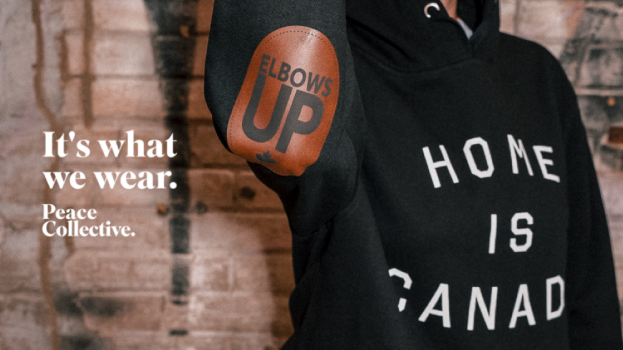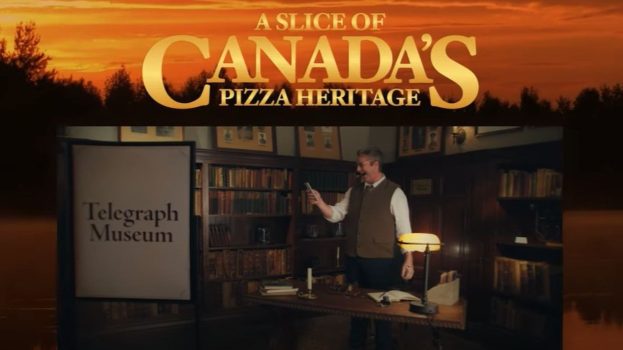As the end of the year rolls around, the editorial staff at strategy and Media in Canada are looking back at the creative work that might not be darlings on the awards circuit – yet – but are still deserving of recognition. Be sure to check out the first part here.
Natrel, “Intolerance”
It’s all in the details. Natrel’s “Intolerance” mockumentary is a great piece of meticulous advertising in a tried-and-true format that, if done well, almost always guarantees viewer amusement. The slice-of-life film by Lg2 features a man who grew to be a giant thanks to the milk products he consumed as the son of a milkman, but was later sadly diagnosed as being lactose intolerant. It’s repeat-worthy branded content. Watch it multiple times over, and you’ll find a new detail or nuance on the production set or within the cheeky storyline: from the clever placement of items in each scene to the subtle reverb when the camera cuts to a delicious bowl of linguine made with milk, it’s those little and big details that makes this a speculator production piece.
[iframe_youtube video = “odVd1IOi7cI”]
Jennifer Horn
Ontario Council of Agencies Serving Immigrants, “Break The Behaviour”
Canada has a reputation as The Nice Place when compared to its southern neighbour. We condemn executive orders banning travel from Muslim nations while patting ourselves on the back because, hey, everyone’s welcome here, right?
This view forcibly overlooks events like the recent assault on a family by a man wielding a bat, and how they are a part of an increasing number of hate crimes reported to police.
The Ontario government did a good job addressing this issue in its PSA campaign from January, particularly in the ad about a family returning home to find it vandalized by hate speech. Created by agency Mass Minority, it found the right note of seriousness, neither tip-toeing around the issue nor being needlessly shocking. It was a good reminder that while our government has opened its arms to the world, sometimes our neighbours don’t.
[iframe_youtube video = “NFJiDSh5ii4”]
Jeromy Lloyd
Alzheimer Society of British Columbia, “Scratchable Postcards”
“Hold loved ones close.”
“Save important dates.”
“Recover lost memories.”
Alone, these sentences are simple, self-explanatory phrases applicable to anyone. But when put in the context of life-altering diseases like Alzheimer’s and other types of dementia, they take on a whole new meaning – both for those with the disease and their families.
The Alzheimer Society of British Columbia’s “Scratchable Postcards” campaign was spot-on in conveying this. The organization and agency Rethink launched the direct mail campaign as part of Brain Awareness Week in March 2017 by sending British Columbians postcards showing a man sitting alone on a couch. Around him, the word “Alzheimer’s” was written in large letters using “scratchable” ink. The idea was to have people use a coin to scratch away each
letter, revealing aspects of a person’s life that would be “covered up” by dementia, such as the examples above.
This campaign really hit home for me since I have a loved one who struggles with dementia. Often one of the first things people think of when they hear Alzheimer’s or dementia is memory loss. And while that is a common and significant consequence, they are much more complex and affect many aspects of an individual’s life. The Alzheimer Society of B.C. and Rethink broadened the conversation by touching on personal, familial and social struggles.
[iframe_youtube video = “PVVq8e9-R6Q”]
Sneh Duggal
Casey House, “June’s HIV+ Eatery”
As most people in the communications business know, people are not always easily wooed by facts, arguments or common sense. Sometimes, they really need to see in order to believe.
That’s what rendered Casey House’s HIV/AIDS awareness campaign so effective this year. In opening up June’s pop-up eatery, not only did the Toronto hospital advance an important social cause by making the facts about HIV/AIDS impossible to ignore, but it accomplished that mission in style, serving up chef-inspired fare prepared by people with the disease who wore aprons with biting slogans like “HIV is my disease. Is ignorance yours?” and “I got HIV from pasta. Said no one ever.”
The campaign was timed with the release of Casey House’s Smash Stigma survey, which showed that 40% of Canadians wouldn’t knowingly eat food prepared by someone who is HIV positive. The organization was therefore justifying the need for greater awareness of the facts, while working with Bensimon Byrne to serve up a bold campaign that undermined stereotypes with every dish.
[iframe_youtube video = “zAbHlG2Zsqk”]
Justin Dallaire
























